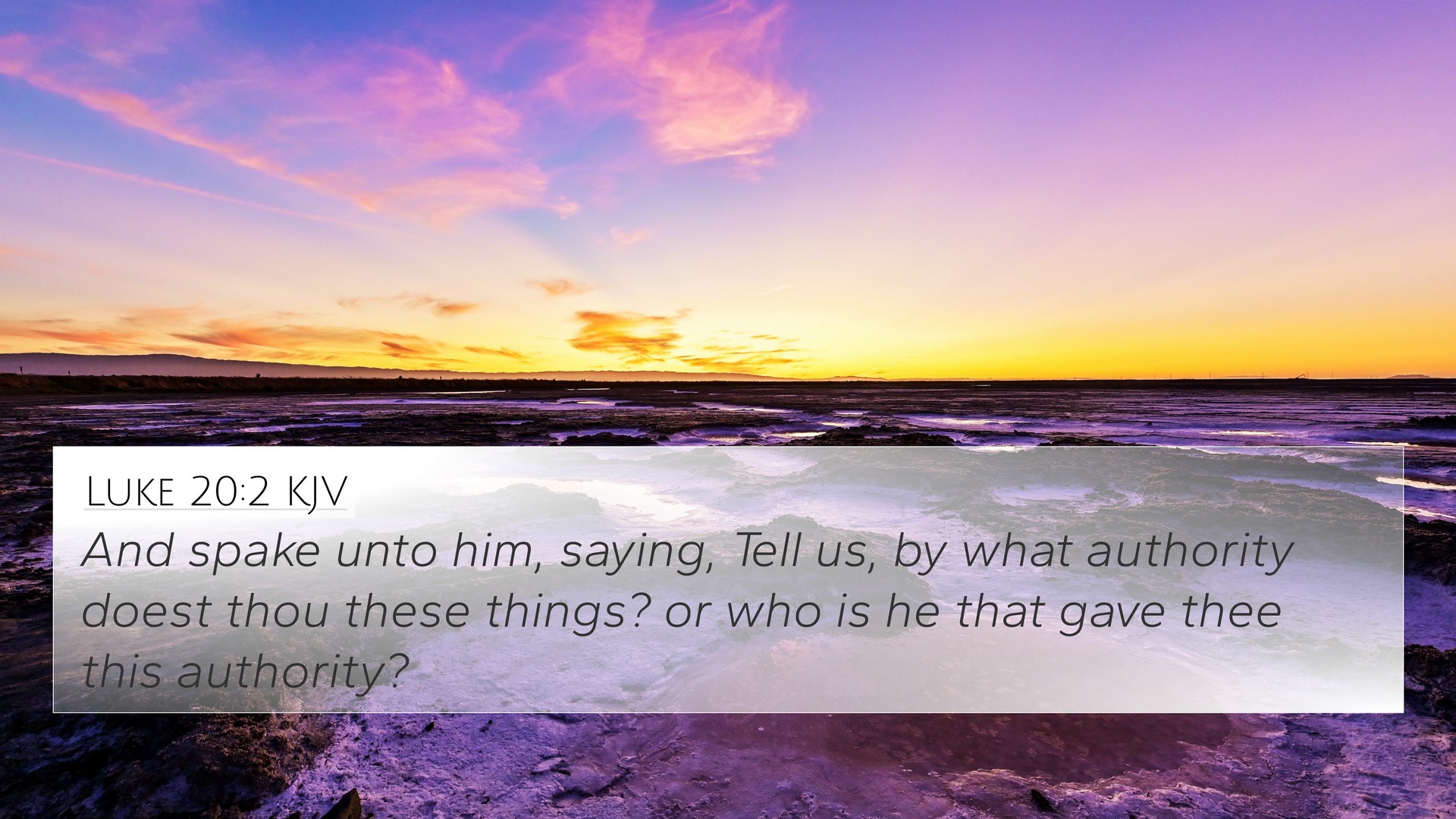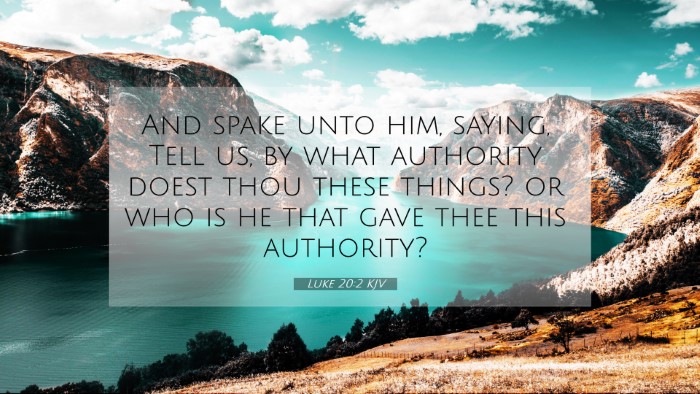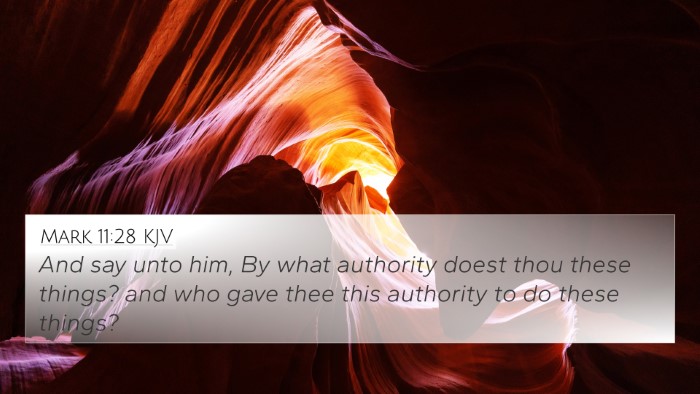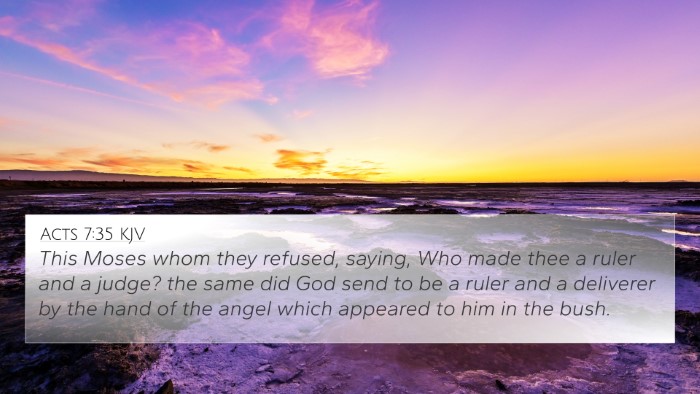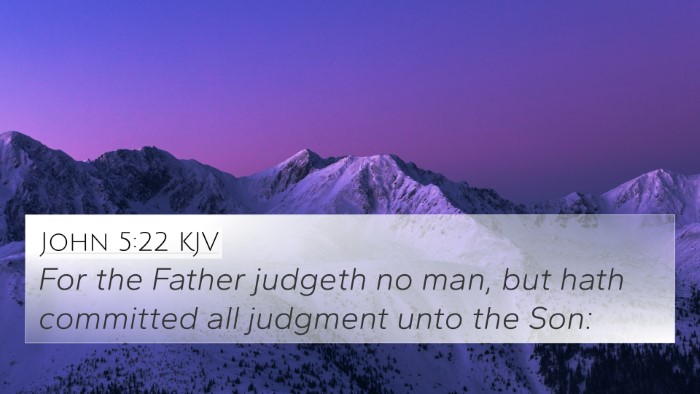Understanding Luke 20:2
Luke 20:2 states:
"And spake unto him, saying, Tell us, by what authority doest thou these things? or who is he that gave thee this authority?"
Summary of Meaning
This verse captures a pivotal moment where the religious leaders question Jesus' authority regarding His teachings and miracles. The inquiry reveals the tension between Jesus and the Jewish authorities, establishing a significant theme of authority throughout the Gospel.
Contextual Analysis
In the preceding chapters, Jesus had been teaching in the temple and performing miraculous acts. His growing popularity among the people made the religious leaders wary, leading them to confront Him directly.
Insights from Commentaries
- Matthew Henry: Henry emphasizes that the questioning of Jesus' authority stems from a desire to undermine His influence and validate their own. He notes that the leaders’ challenge is both strategic and deceitful, meant to trap Jesus in His own words.
- Albert Barnes: Barnes highlights the significance of authority in the context of Jewish law. He discusses how teachers and prophets were often questioned in this manner, and how Jesus' response would reveal His divine credentials.
- Adam Clarke: Clarke provides a theological perspective, stating that the questioning of Jesus’ authority reflects a broader human resistance to divine truth. He points out that the leaders’ lack of understanding highlights their spiritual blindness.
Cross-References
This verse can be linked to several other scripture passages that reinforce its themes:
- Matthew 21:23-27: The Pharisees question Jesus similarly about His authority and He responds with a question about John the Baptist, illustrating the complexity of authority.
- John 5:30-31: Here, Jesus speaks of His authority coming from the Father, connecting to the theme of divine approval of His mission.
- Matthew 28:18: Jesus states that all authority in heaven and earth has been given to Him, affirming His divine authority.
- Acts 4:7-10: The apostles face similar questioning after Jesus' resurrection, reflecting the ongoing challenge to their authoritative preaching.
- Hebrews 1:1-2: This passage emphasizes God speaking through His Son, underscoring Jesus’ ultimate authority over all revelation.
- Isaiah 61:1: This Old Testament prophecy alludes to the authority and anointing of the Messiah that Jesus embodies.
- Matthew 7:29: Jesus teaches with authority, contrasting with the scribes, further highlighting the unique nature of His teaching and authority.
- Mark 11:27-33: Another account of Jesus being questioned about His authority when He cleanses the temple, showing His confrontational stance against the religious leaders.
Thematic Connections
Luke 20:2 serves to link several key biblical themes:
- Authority of Christ: Throughout the Gospels, the theme of Jesus' authority is prevalent, showing His unique position as the Son of God.
- Conflict with Religious Leaders: This verse signifies the ongoing struggle between Jesus and the established religious order, which runs throughout the New Testament.
- Recognition of Truth: The tension between divine authority and human skepticism is a recurring motif in Scripture, urging readers to seek the truth in Jesus’ words and works.
Practical Applications
Understanding the implications of Luke 20:2 encourages believers to:
- Examine their own understanding of Jesus' authority in their lives.
- Engage in thoughtful discussions about faith and authority.
- Recognize that questioning beliefs can lead to deeper understanding, much like the religious leaders' inquiry.
Conclusion
Luke 20:2 is a profound verse that opens avenues for deeper exploration of Jesus' authority and its implications for the believer's life. Through cross-referencing biblical texts, one can uncover rich themes and connective threads that enhance one’s understanding of Scripture.
For those who wish to delve deeper, exploring tools for Bible cross-referencing, utilizing a Bible concordance, and engaging in cross-reference Bible study may provide valuable insights.
